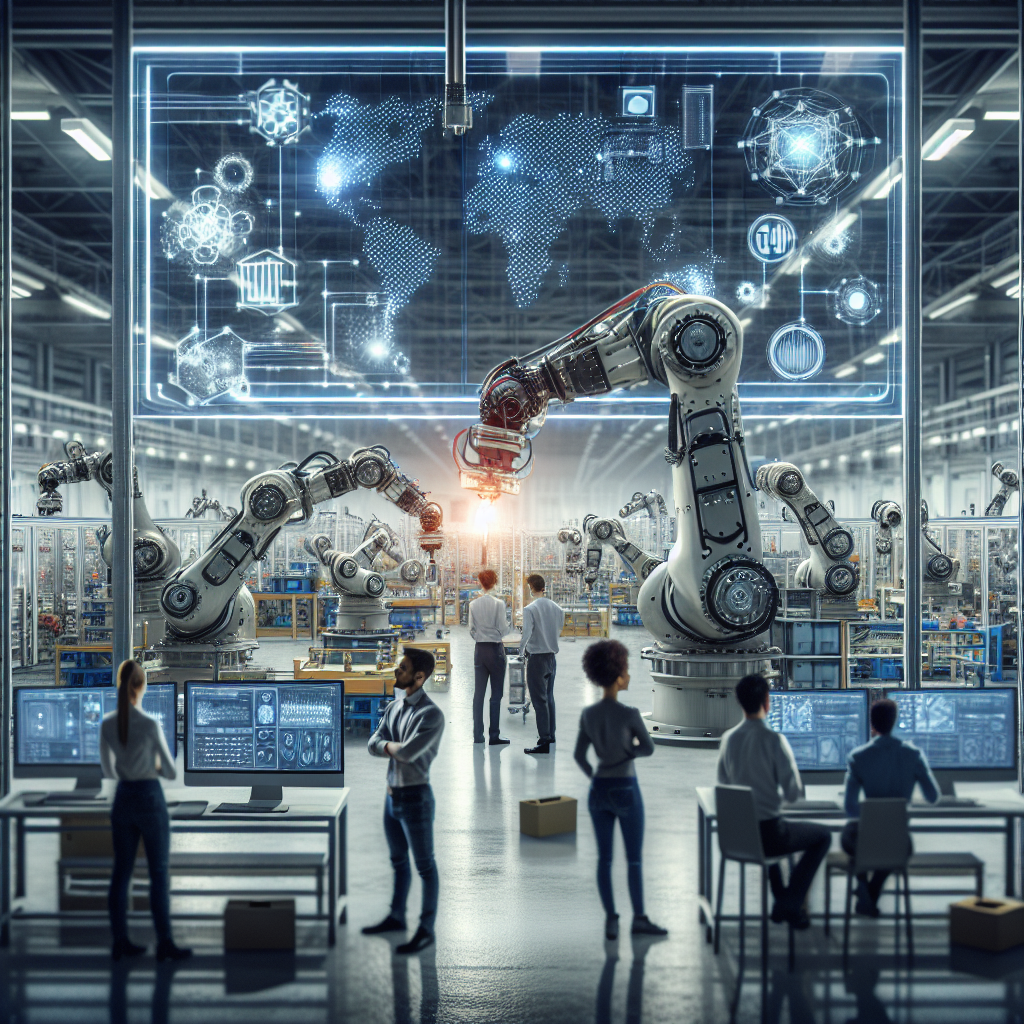The Role of AI in Autonomous Manufacturing
Artificial Intelligence (AI) is revolutionizing the manufacturing industry by enabling autonomous manufacturing processes. AI technologies like machine learning, computer vision, natural language processing, and robotics are being used to automate various aspects of manufacturing, from production planning and scheduling to quality control and maintenance. This article will explore the role of AI in autonomous manufacturing and how it is transforming the industry.
1. Production Planning and Scheduling
AI is being used to optimize production planning and scheduling by analyzing historical production data, market demand, and resource availability to generate efficient production schedules. AI algorithms can quickly adapt to changing conditions and make real-time adjustments to production schedules to maximize efficiency and minimize downtime. This enables manufacturers to produce goods more quickly and cost-effectively, meeting customer demand while reducing waste and improving overall productivity.
2. Quality Control
AI-powered systems are being used to improve quality control processes in manufacturing by analyzing sensor data, images, and other sources of information to detect defects and anomalies in real-time. Machine learning algorithms can identify patterns and trends in production data to predict potential quality issues before they occur, allowing manufacturers to take corrective action proactively. This helps to reduce the number of defective products, improve customer satisfaction, and minimize the costs associated with rework and warranty claims.
3. Predictive Maintenance
AI is also being used to predict when equipment is likely to fail so that maintenance can be performed proactively, reducing downtime and minimizing the risk of costly breakdowns. By analyzing sensor data and historical maintenance records, AI algorithms can identify patterns that indicate when a machine is likely to fail and alert maintenance personnel to take action before a breakdown occurs. This enables manufacturers to schedule maintenance at the most convenient time and avoid unplanned downtime, improving overall equipment efficiency and reducing maintenance costs.
4. Autonomous Robots
AI-powered robots are being used in manufacturing to perform a wide range of tasks, from assembly and packaging to material handling and inspection. These robots can be programmed to work autonomously, making decisions based on sensor data and predefined rules to perform tasks more efficiently and accurately than human workers. Autonomous robots can work 24/7 without breaks, reducing labor costs and increasing production output. They can also be easily reprogrammed to perform different tasks, making them highly flexible and adaptable to changing production needs.
5. Supply Chain Management
AI is also being used to optimize supply chain management by analyzing data from various sources, such as production schedules, inventory levels, and transportation routes, to identify opportunities for cost savings and efficiency improvements. AI algorithms can predict demand fluctuations, optimize inventory levels, and identify the most cost-effective transportation routes, enabling manufacturers to streamline their supply chain operations and reduce costs. This helps to improve overall supply chain efficiency and responsiveness, allowing manufacturers to better meet customer demand and compete in the global marketplace.
Frequently Asked Questions (FAQs)
Q: How is AI being used in manufacturing?
A: AI is being used in manufacturing to automate various processes, such as production planning and scheduling, quality control, predictive maintenance, autonomous robots, and supply chain management. These AI-powered systems analyze data from sensors, machines, and other sources to optimize production processes, improve quality, reduce downtime, and streamline supply chain operations.
Q: What are the benefits of AI in manufacturing?
A: The benefits of AI in manufacturing include increased productivity, improved quality, reduced downtime, lower maintenance costs, and optimized supply chain operations. AI-powered systems enable manufacturers to produce goods more quickly and cost-effectively, meet customer demand more effectively, and compete in the global marketplace more successfully.
Q: What are the challenges of implementing AI in manufacturing?
A: Some of the challenges of implementing AI in manufacturing include data integration, data quality, cybersecurity, and workforce training. Manufacturers need to ensure that their data is accurate and reliable, protect their systems from cyber threats, and train their employees to work alongside AI-powered systems effectively.
Q: How can manufacturers get started with AI?
A: Manufacturers can get started with AI by conducting a thorough assessment of their current processes and identifying areas where AI can help improve efficiency and reduce costs. They can then pilot AI-powered systems in these areas and gradually scale up their use of AI as they gain experience and confidence in the technology.
In conclusion, AI is playing a crucial role in transforming the manufacturing industry by enabling autonomous manufacturing processes that improve efficiency, quality, and competitiveness. By leveraging AI technologies like machine learning, computer vision, and robotics, manufacturers can automate various aspects of their operations and achieve significant cost savings and productivity gains. As AI continues to evolve, its impact on manufacturing will only grow, leading to more agile, responsive, and efficient production processes.

